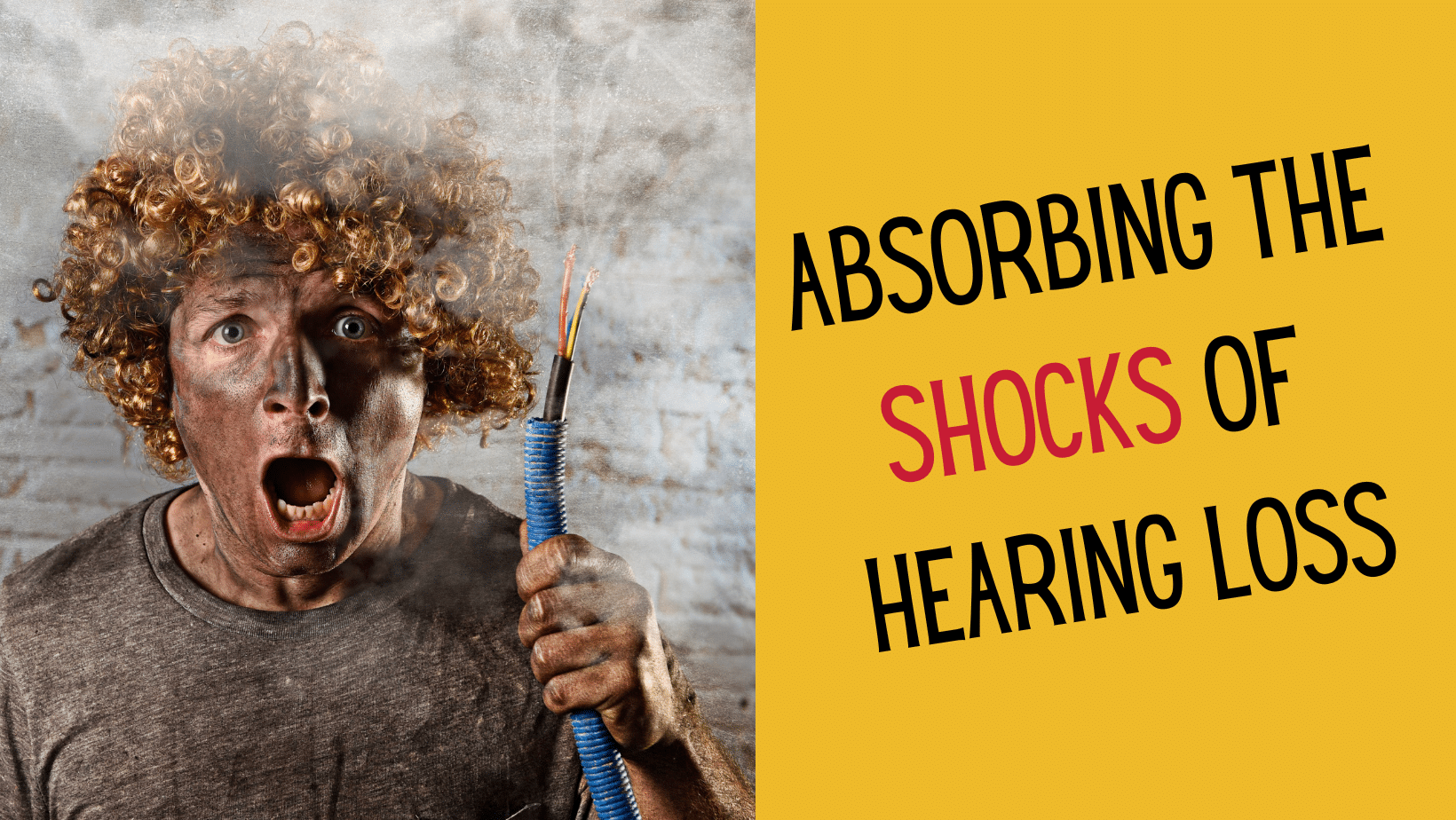Hearing loss is one of those gifts that keeps on giving. Once you have it, your hearing loss presents itself to you every day, in different ways. A poorly captioned TV show, a sales clerk whose lips point to her computer, a conversation with friends that spins out of control into incomprehension.
Regardless of when hearing loss first occurs, experiencing one of its truths for the first time can be shocking in its unexpectedness, its permanence, and its raw repercussions. How could such a thing could happen to us? I recently wrote a book with Shari Eberts called Hear & Beyond: Live Skillfully with Hearing Loss that shows the positive benefits of looking at our hearing loss in a new way. But to do that, it’s important to understand the realities, the Big Picture, of having hearing loss.
These were some – just some – of the shocking moments of truth that have hit me, hard. (And some of them keep coming at you, as if you were a punching bag, again and again.)
Your hearing loss will never go away. Most of us will always have it. Always, forever and ever, amen. And if you don’t like it, that’s too bad, because it’s yours to keep and you can’t re-gift it. I was small when I first learned this, but it didn’t really hit me until I was a teenager, trying to communicate with mumbling, hormonal boys. Then I realized, “This hard of hearing thing is not going to be easy.”
Hearing aids do not last forever. Just when you become used to them, attached to them, or even adoring of them, they die. At 20, I was thrilled, over the moon, to get my first hearing aid. It cost $475 and was my first adult purchase. Some people buy cars or furniture – I invested in a hearing aid, the first of many. It lived for perhaps six or seven years, which I now know is an incredibly long time, but I was expecting much longer, 10 or 20 years maybe? I felt betrayed when I had to replace it – because the new one cost a lot more than $500. It’s like your teeth; did your parents tell you that around age 50 or so, your childhood cavity fillings would start falling out and you’d have to replace them on your own dime? Once should be enough.
Every time you get a new hearing aid, it’s like the first time. I’m talking about the loud and annoying stuff. You can hear yourself breathing – you can hear people on the other side of the world breathing! You can hear your own tummy rumbling! Having never heard anyone else’s tummy growling, I didn’t realize it was so loud!
The good news: after a few weeks of breaking in the hearing aids (when sometimes you want to break it in pieces the sounds are no longer as loud or grating. You may panic, thinking the devices have made your hearing worse, but the truth is that our brain has adjusted to the signals it receives. Trust me.
Your friends and loved ones forget or ignore the new rules of communication. You’ve explained how hearing loss and hearing aids work. More than once. You have told them what you need from them. Many times. But still, time after time, they still forget to communicate in an inclusive way. And here’s the real shocker – neither will you. Let’s admit it – who among us hasn’t called their partner from another room – who then has the outrageous nerve to answer you from the other side of the wall!
Learning to live well with hearing loss can take a long time. The aural rehabilitation process seems to be on a continual loop, like a movie played over and over. Just when you think you’ve nailed it, a bad hearing day knocks you flat on your butt. The good news: in my experience, the bad hearing days become fewer – and easier to recover from – when we learn how to kick down those communication barriers. But the learning must be intentional; become better at hearing loss by reaching out for help, by reading books and by talking to other people with hearing loss.
Absorbing the shocks of hearing loss takes time and supports – and life will be better when we do.








Good article Gael. I am happy enough in my small walled world. Been a lifetime of this. And I have started to not care that much when family gatherings leave me sitting staring at the wall. Must be my age – getting older, less irritable. I have one gripe at the moment though, with a TV ad, for vitamin supplements, that is directly aimed at the senior market and is not captioned!! Can you believe that? With the vast percentage of seniors with hearing loss – I guess they only feel that hearing seniors count. Who, at their company, does their market research? I tried to send them an email and could not find a contact email, just a “no reply” email.
Love this excerpt from your article Gail:
“…. the learning must be intentional; become better at hearing loss by reaching out for help, by reading books and by talking to other people with hearing loss.”
This is precisely what a membership with a local HLAA Chapter looks like! I urge seeking out such membership
Ella Hurrell
secretary HLAA Indianapolis Chapter
[email protected]